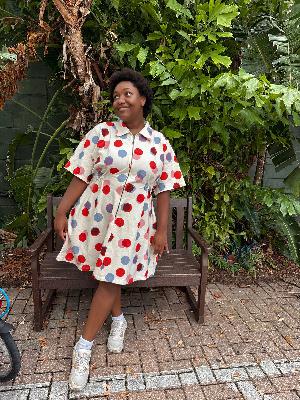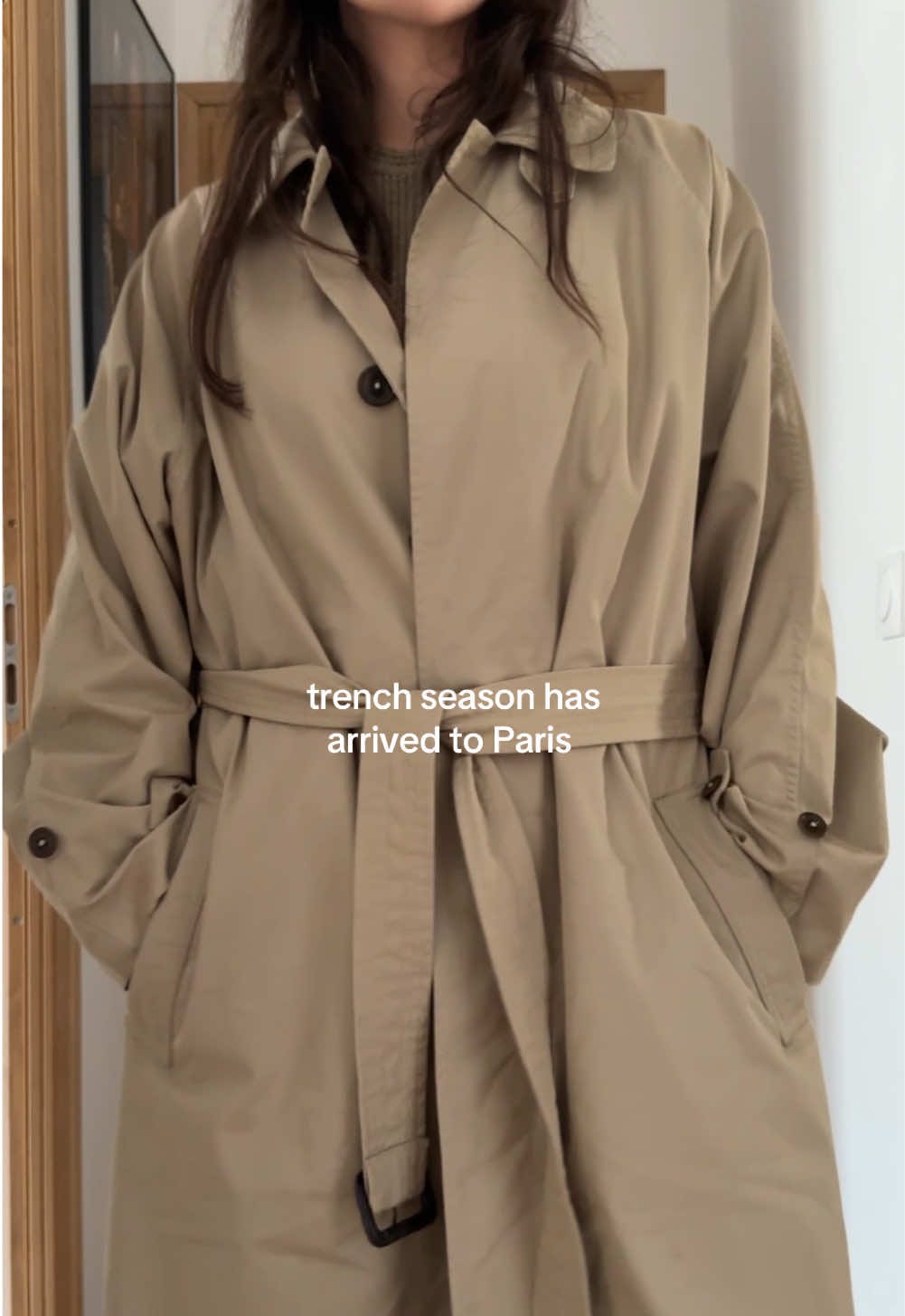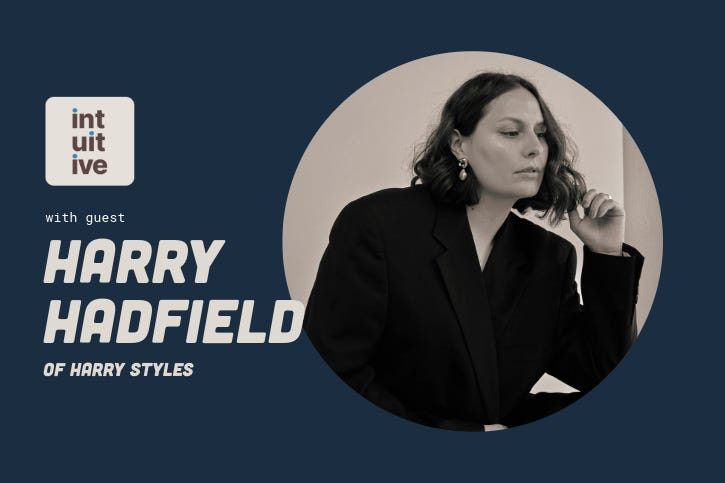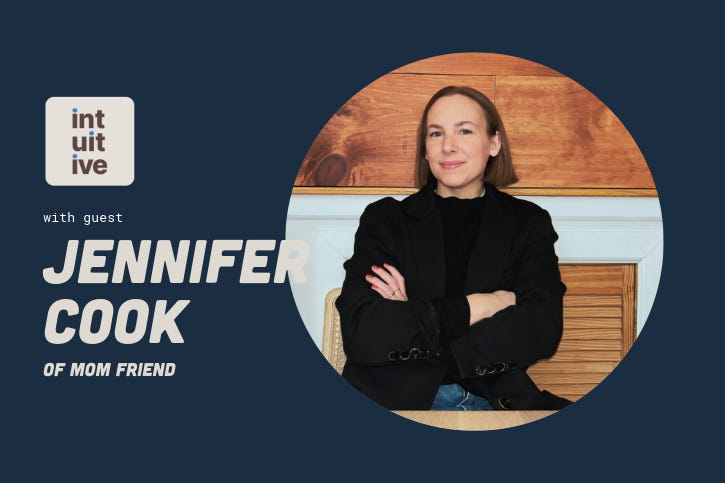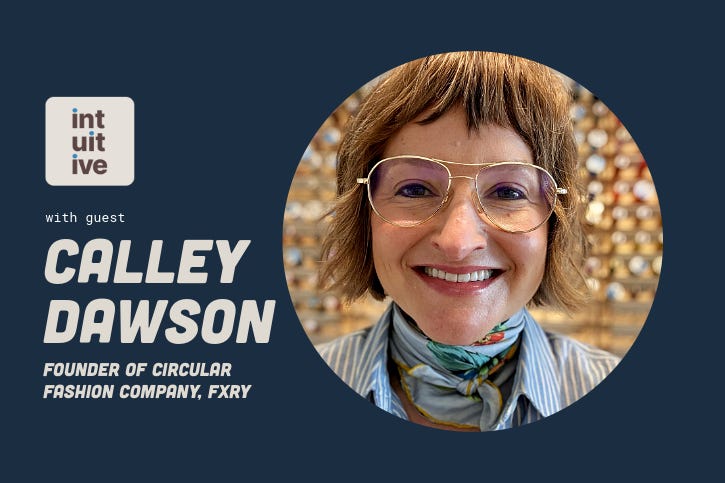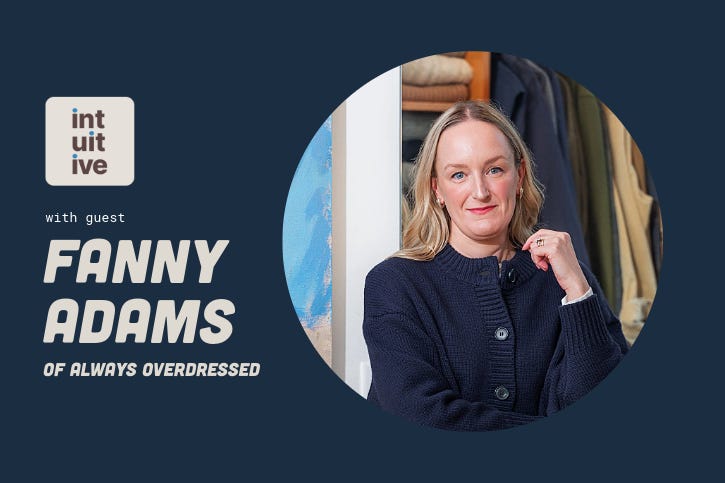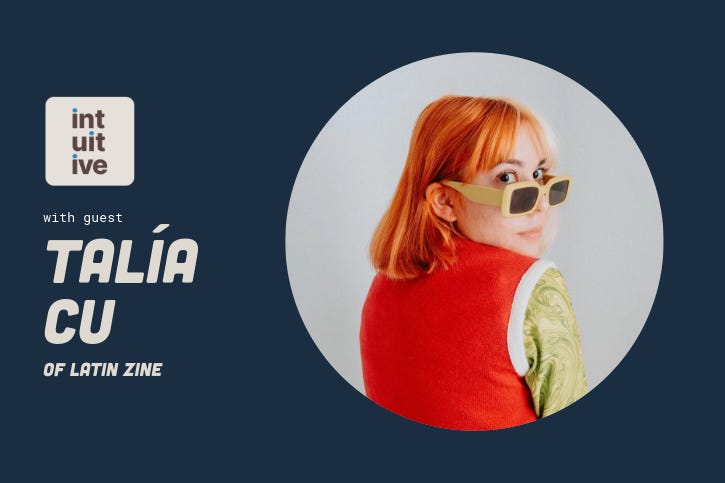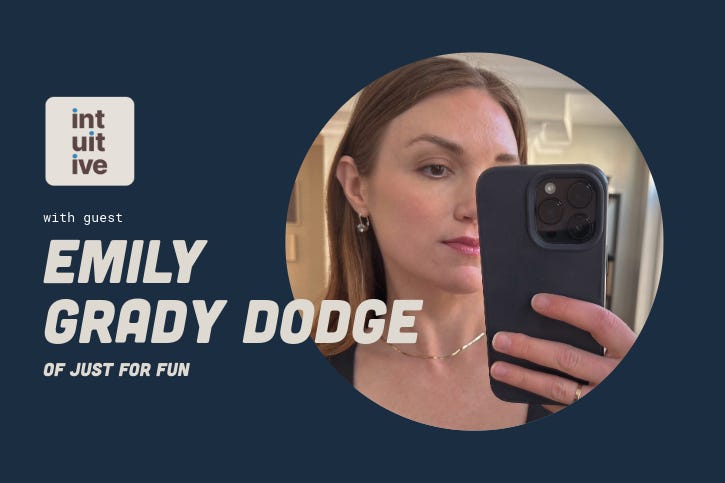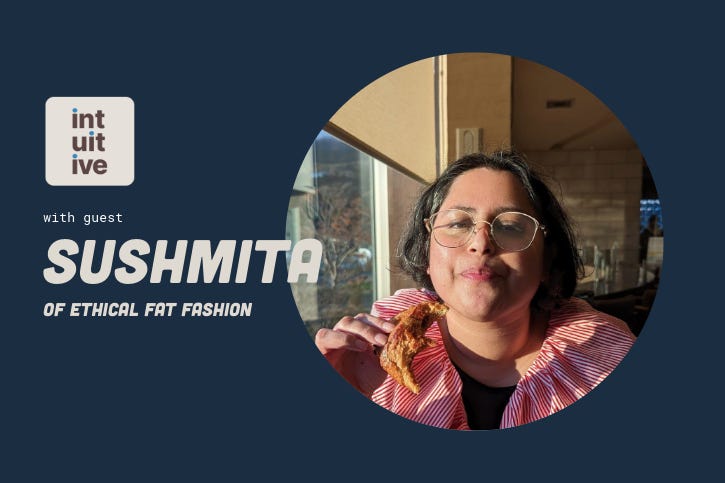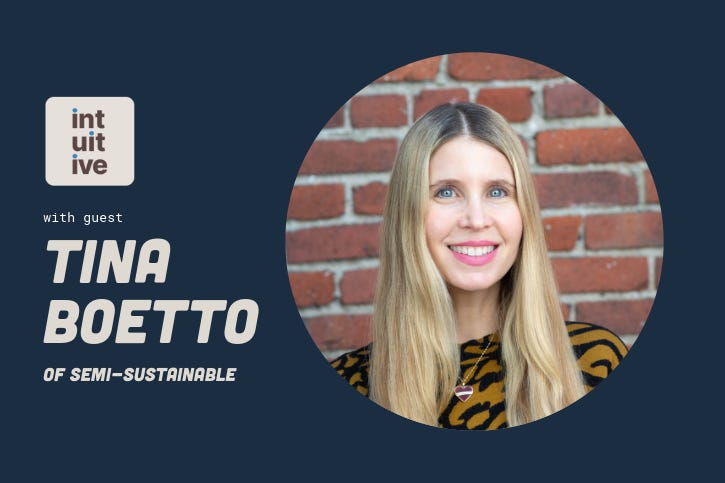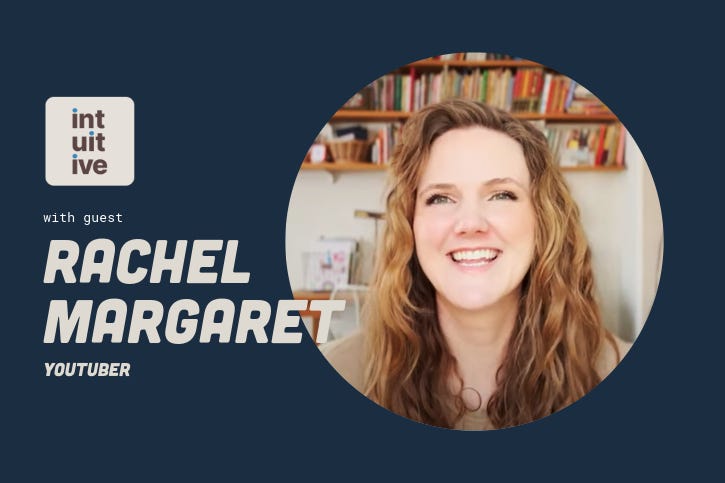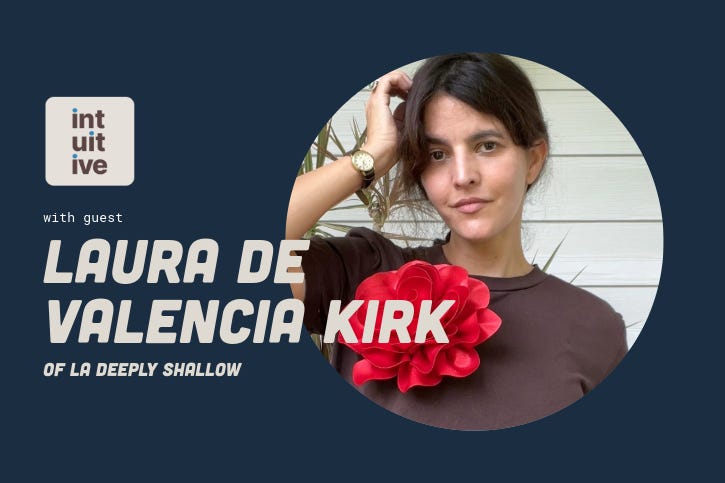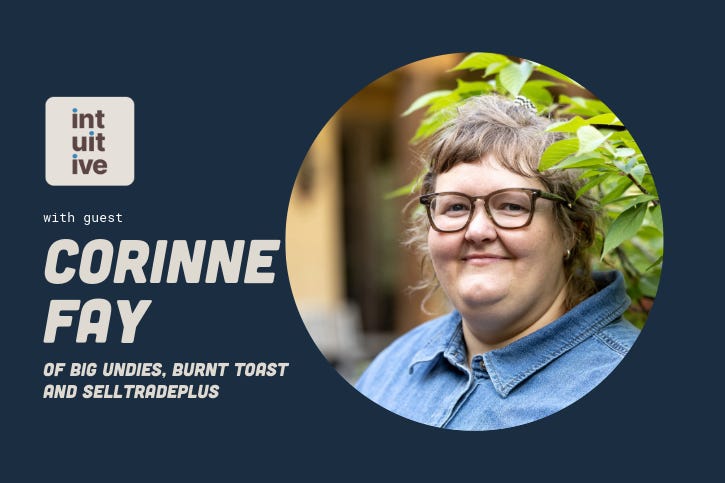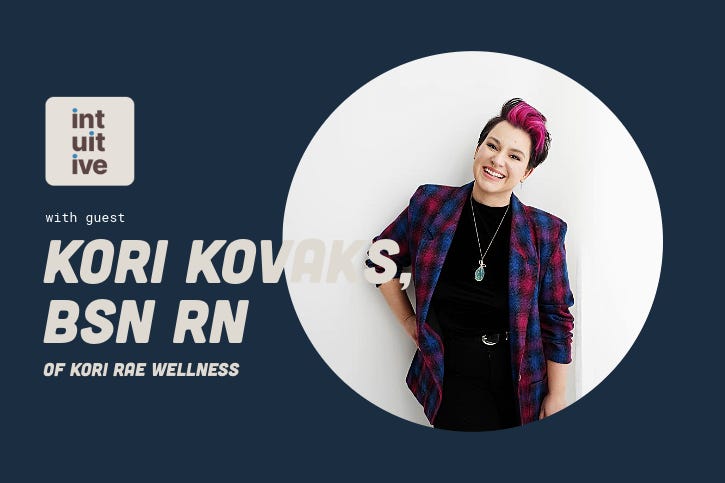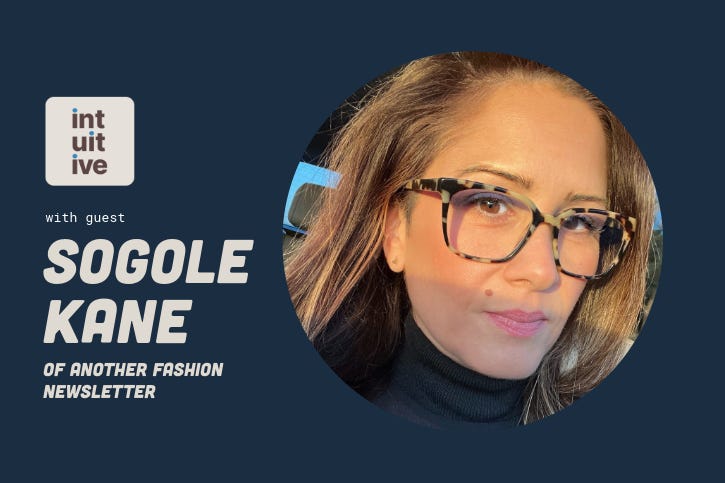Episode 18. Replacing limiting beliefs with liberating beliefs, with Christine Platt
Description
This is the LAST episode of Season One of Intuitive Style the podcast, featuring one of my long-time inspirations, Christine Platt. I’ve kept up with Christine’s social media for years, since I first discovered Minimalism in earnest back in 2020. Her approach to intentional-living is unparalleled, leading with introspection, questioning everything, and being open to surprise. She’s also recently joined Substack herself at Lessons on Liberation, give her a follow! I can’t think of a better person to wrap up the first season with.
While we’re on break for summer, you can catch up with all of the incredible previous guest episodes here. Enjoy!
Episode Transcript
This transcript has been edited for clarity.
Maureen: You're listening to Intuitive Style, where we believe that everyone has style. I'm Maureen Welton. In conversation with fantastic guests, we explore how to tap into our style intuition so that we can dress authentically and live fully. Today's guest really needs no introduction, but I'm going to give her her flowers anyway. She's a multi-genre author, a trailblazer for representation in the lifestyle and wellness space. And a voice so many of us turn to for wisdom and inspiration. You might already follow her on Instagram or perhaps, you know, her beautiful book, The Afro-Minimalist Guide to Living with Less. I'm honored to welcome her to the show, Christine Platt.
Christine: Thank you so much for having me, Maureen. I'm happy to be here.
Maureen: Likewise, I'm so excited to get to talk to you today. I'll just jump in with one of the aspects of your work that really resonates with me. Especially reflected by the title of your upcoming book, Less is Liberation, is how you move towards what is good rather than simply away from what's bad. And so you center alignment, possibility, empowerment, rather than focusing on restriction or lack or even comparison, right? And that approach has really stayed with me and makes me feel empowered, loved, deeply capable, all the best things. Can you share how you came to see the world in that way? And how did you learn to find expansion where others might see limitation?
Christine: You know, this is the new sort of muscle that I have learned to exercise. It's almost like we're taught to be hard on ourselves. You know what I mean? So for so many years, I was just so hard on myself. And, you know, there's a quote in The Afro-Minimalist Guide that is still a mantra that I live by, which is: I am not a grown woman, I am a growing woman. And I think that that mantra helped me sort of move from this space of like, “You should know better, you should…” you know what I mean? Just being really negative and hard on myself to being in this place of like, wow, you're growing, you're expanding, you're learning something new every day.
And the other part of that quote is, And may I always be growing. So I'm not a grown woman, I'm a growing woman, and may I always be growing. And I think that leaves space for us to not be so hard on ourselves and understand we're all students of life. We're all trying to figure it out. And there's just no reason for us to be as hard on ourselves as we are. Like when I look back on my younger years, I'm like, I was so mean to myself. You know what I mean? I was so hard on myself—and why? And again, I think so much of it is learned behavior. So learning to look at myself, reframing a lot of what I've been told as a child, unlearning a lot of what I've been told by society, and really getting into the space of like, you know what? Let me love myself. Let me love myself through all of these life lessons, through these journeys. And it's just been beautiful. I mean, I think what a gift, right? To be able to reflect, sit back with ourselves, learn from— I don’t want to say mistakes—so many of the lessons that we have had throughout our lifetime. And really look at them through a lens of love instead of being so critical and understand that they have really helped shape and make us who we are.
Maureen: So I'd love to hear from your perspective—could you share a little more detail on how do you actually change that self-talk in the micro moments? Do you have an approach to catching those negative thoughts?
Christine: Yeah. I mean, I think we catch them all the time, right? They're more like limiting beliefs—that's what I speak to them as in Less is Liberation. They’re these limiting beliefs that have become a part of our narrative, that have really started to take over our lives, become rules that we live by. They influence our behaviors and what we think about ourselves. And in those moments, it’s almost like catching yourself, like you said, in real time. When I hear myself being critical, just pausing—the power of pause has been a big part of my practice. And that is pausing when I'm saying something to myself and I'm like, wait, where did that come from? Pausing to self-assess, pausing to be introspective. And then in that moment, reframing. Because it's in that reframing where we get to tell ourselves new stories, where we get to look at past circumstances that may have truly been life-altering and defining for us in one way—and reframe them in another way that becomes more empowering.
So for example—excuse me, here in DC the pollen is crazy, so I’m going to apologize now for any coughing—but for example, being very critical of ourselves and saying something like, “Man, I just should have worked harder on that,” even when we know that we gave something our all. Pausing to say, “What—you did work hard. What makes you think that you could have worked harder?” And it starts this drill-down of messaging and conditioning. And it’s just like, “Well, I could have worked harder because I went to bed at nine. I could have probably stayed up until eleven.” And then: “Well, why do you feel like you need to stay up until eleven?” “Well, I was taught…” You know what I mean? It’s a lot of self-talk.
And I think that’s a part of “doing the work” that people don’t really talk about—is that it’s really conversations that we have with ourselves. We spend so much time seeking external validation. We spend so much time looking for answers outside of ourselves, when all the while, the answers are right within us. And so doing that introspective work, asking myself “why?”—repeatedly drilling down—is where I found out like, man, I really am a people pleaser. I didn’t realize that I was a people pleaser, right? Because I’d reframed it in other ways: “I’m just helpful,” “I’m just kind,” “I’m just sharing,” right? And then really sitting with myself one day and being like, no, this is people-pleasing behavior. Why? Where did this come from?
That work—that reframing—it almost has to happen either in real time or through being introspective. So if you can’t catch it in real time, make time every day to be introspective. But what most of us do—and I’m not pointing fingers, because I feel like the way our lives are, the way society is set up, we live in this capitalist world, we’ve been taught to consume and work—most of us don’t make time for that introspection. We don’t make time to self-assess. But in those little moments of self-assessment is where that reframing happens. It’s where you get to reclaim your narrative, reclaim yourself, and really start to do things differently.
And I like to say, we can replace our limiting beliefs with liberating beliefs. So we can say—man, it’s funny, I’ve worked through so many I can’t even think of one! But I’ll try. Like one was: “I have to work hard,” or “I have to get it done or no one else is going to do it.” Replacing that with a liberating belief: “I am not the only one who is capable of doing it. Other people are also able to do it. And me giving them time and space to do that is also enlightening and helpful for their journey.” Just replacing it in real time with something that is liberating, as opposed to berating ourselves all the time.
So if I can think of a practice or a “how to,” it is just: make time every day to think about, “Where did this thought come from?” We know the thoughts that aren’t serving us. Then question it—just do a little inquiry.
Maureen: Yeah.
Christine: Don't know. Have you ever heard of the book... oh my goodness. I can, I can see it—it's Michael Singer and...
Maureen: Yeah.
Christine: It is...
Maureen: Is...
Christine: You...
Maureen: This...
Christine: Know...
Maureen: The...
Christine: Like...
Maureen: Untethered Soul?
Christine: I'm talking...
Maureen: I'm...
Christine: Yes.
Maureen: Obsessed with that book.
Christine: Oh my God. It's so good. So, you know what I'm about to say, which is that inner roommate, man. It's our inner roommate. And when he talks about—I don't know if you've listened to the audiobook—but the audiobook is so funny because...
Maureen: I'll check it out.
Christine: Yeah, like you really—I have the physical copy and the audiobook too—but the audiobook is so f

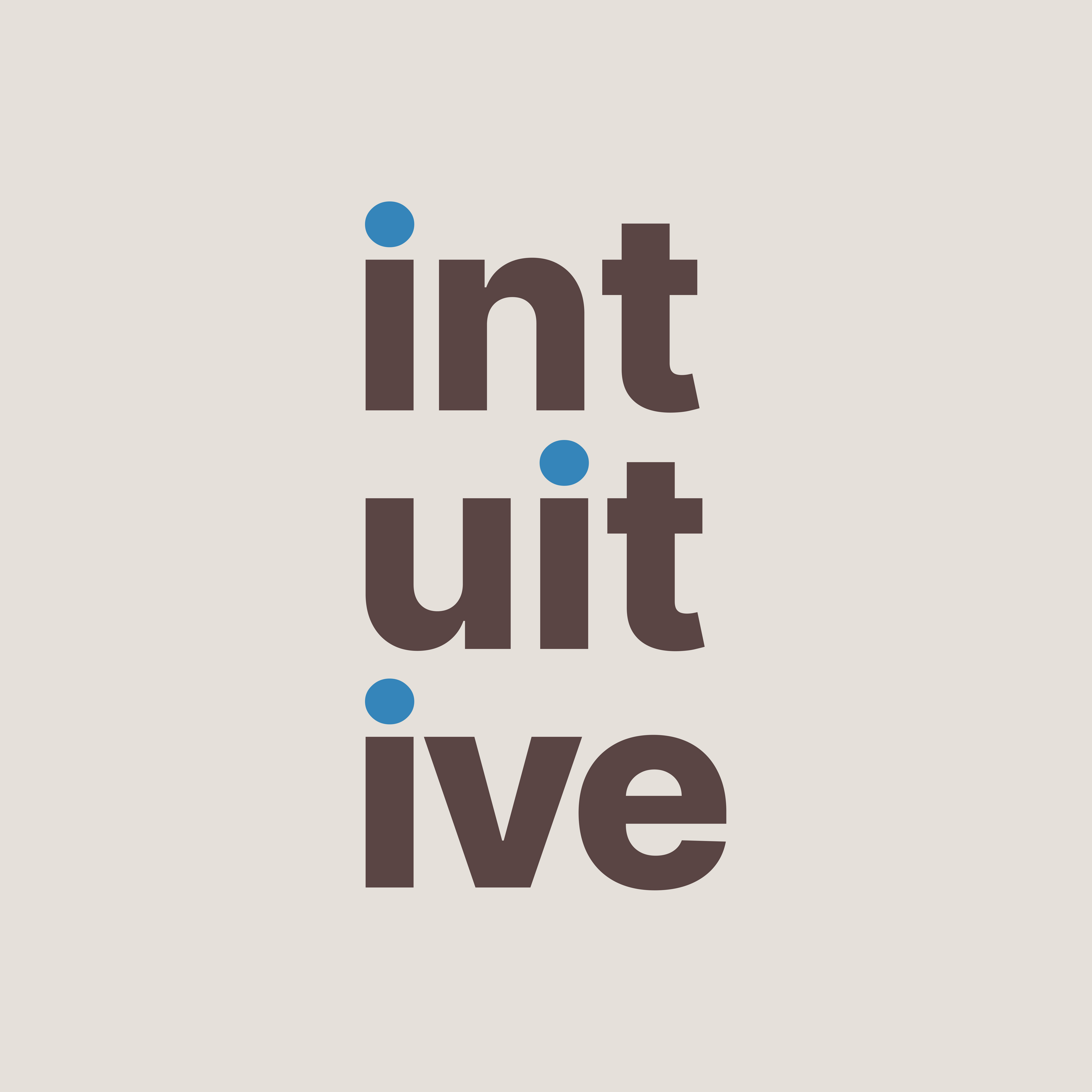
![Episode 24. Rambling in [Intuitive] Style, with Traci Landy Episode 24. Rambling in [Intuitive] Style, with Traci Landy](https://substackcdn.com/feed/podcast/2669400/post/177614968/9bbc5a3f73fab5e46b0a064fb5bff6b4.jpg)
